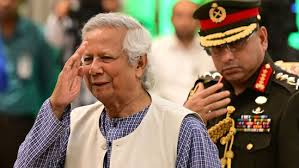Writers and artists in Tripura write to Muhammad Yunus condemning vandalism at Rabindranath Tagore’s ancestral home in Bangladesh

Agartala, June 20 – A collective of writers, artists, and cultural activists from Tripura has penned a strong letter of protest to Nobel laureate Muhammad Yunus, denouncing the recent act of vandalism at the ancestral home of Rabindranath Tagore in Bangladesh’s Kushtia district.
The incident, which involved damage to parts of the historic Kuthi Bari in Shilaidaha, has sparked outrage across the Bengali-speaking world. Tagore, the first non-European Nobel laureate in literature, spent significant time at this estate, composing many of his seminal works, including poems, songs, and letters that contributed richly to Bengali literature.
Cultural Fraternity Speaks Out
The letter, signed by over 70 prominent figures from Tripura’s cultural and literary communities, expressed “deep anguish and moral indignation” over the attack on a site considered sacred by admirers of Tagore across the globe.
“Tagore is not just a poet of Bengal but a universal figure who represents peace, humanism, and creativity. The attack on his legacy is an attack on our shared cultural roots,” the letter stated.
The signatories include acclaimed poet Animesh Debbarma, artist Rita Sarkar, dramatist Subhendu Chakma, and several academics from Tripura University. They appealed to Yunus, known for his global stature and advocacy for peace and justice, to use his influence in urging the Bangladesh government to take strong measures to protect the site and preserve Tagore’s legacy.
Yunus: A Symbolic Choice
While Muhammad Yunus holds no formal position in the Bangladeshi government, the writers’ decision to address the letter to him was deliberate. As a globally respected Bangladeshi figure and a recipient of the Nobel Peace Prize, Yunus symbolizes the progressive and humane face of Bangladesh on the world stage.
“By appealing to Dr. Yunus, we are reaching out to the conscience of Bangladesh,” said Tapan Majumder, a prominent Tripura-based historian. “He has always stood for non-violence and cultural harmony, and we hope he will lend his voice to this important cause.”
Incident Details and Response in Bangladesh
The vandalism reportedly occurred late last week. According to local media in Bangladesh, a group of unidentified miscreants entered the Kuthi Bari premises, damaging doors, windows, and several artifacts. The local police have launched an investigation, though no arrests have been made so far.
Bangladeshi intellectuals and cultural bodies, including Bangla Academy, have also expressed outrage. In a statement, the Ministry of Cultural Affairs condemned the act and vowed to restore the damage swiftly. However, questions remain about the lack of proper security arrangements at the site.
Kuthi Bari: A Pillar of Shared Heritage
The Kuthi Bari in Shilaidaha is not just a historical structure but a symbol of Indo-Bangla cultural unity. Tagore spent considerable time there during the late 19th century, managing his family’s estates and writing some of his most celebrated literary works.
Many of Tagore’s Bengali songs (Rabindra Sangeet), philosophical essays, and letters that laid the foundation for his Nobel-winning masterpiece “Gitanjali” were composed within the serene confines of Kuthi Bari. It remains a site of pilgrimage for lovers of Bengali literature from both India and Bangladesh.
“This is not just about a building,” said Satarupa Das, a cultural anthropologist in Agartala. “This is about preserving the memory of a thinker who shaped the modern conscience of South Asia.”
Cross-Border Cultural Sensitivities
The protest from Tripura’s artists reflects the deep emotional and cultural ties shared between India’s northeastern states and Bangladesh. Tripura, which shares a long border with Bangladesh, has historically maintained close socio-cultural links with Bengal’s literary traditions.
This incident has reignited calls for stronger cross-border cultural cooperation to preserve shared heritage. Several signatories have proposed the creation of a joint Indo-Bangla cultural preservation task force to oversee such historically significant sites.
Politicians and Citizens React
While the Tripura government has not officially responded, opposition leaders, including Sudip Roy Barman of the Congress party, have voiced concern over the incident. “Tripura has always stood for cultural unity. An insult to Tagore is an insult to every Bengali,” he said in a press statement.
Citizens across Agartala and Udaipur also took to social media, sharing photographs and poetry in tribute to Tagore, using hashtags like #ProtectTagoreLegacy and #JusticeForKuthiBari.
Final Appeal for Preservation
The letter to Muhammad Yunus concludes with an appeal for “immediate and long-term steps” by the Bangladesh government to secure Kuthi Bari and other heritage sites associated with Tagore.
“Let this not be a moment of mourning, but of renewal — where both nations reaffirm their commitment to the legacy of Rabindranath Tagore, a poet who belonged to the world,” the letter reads.
As investigations continue and pressure mounts from across borders, cultural activists hope the act of vandalism will serve as a wake-up call to safeguard the rich, shared heritage of South Asia before more is lost to negligence and hostility.






